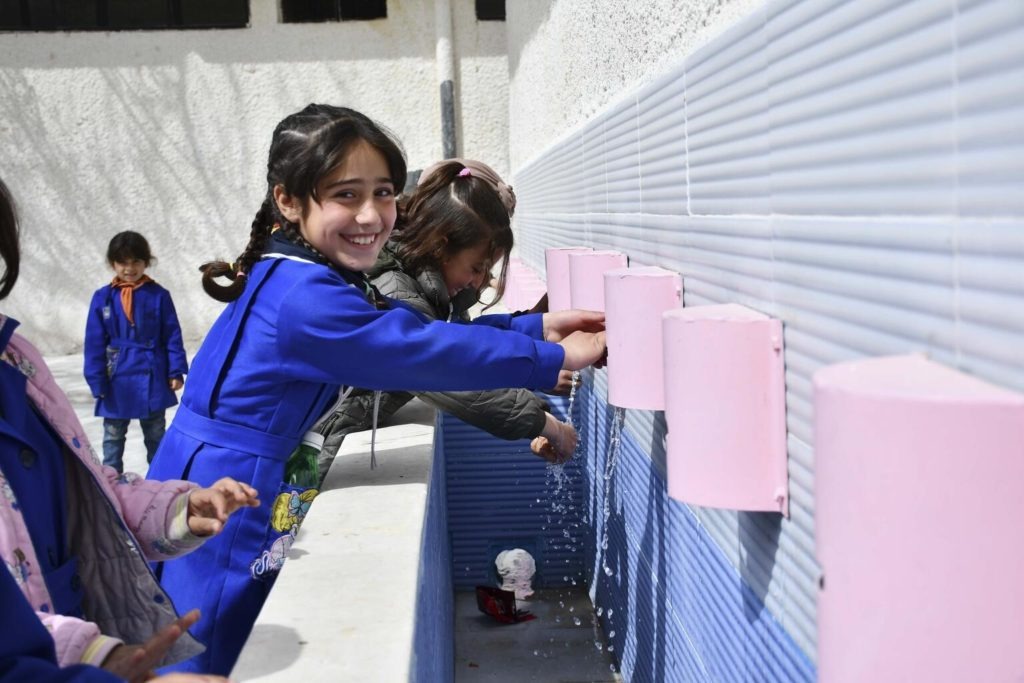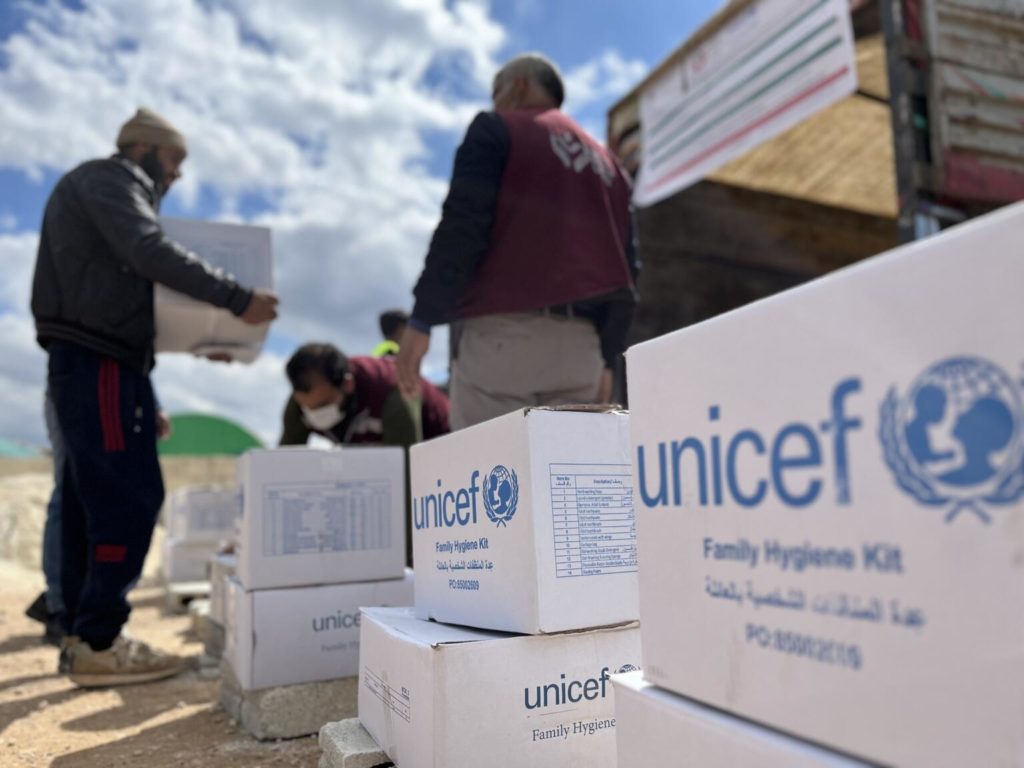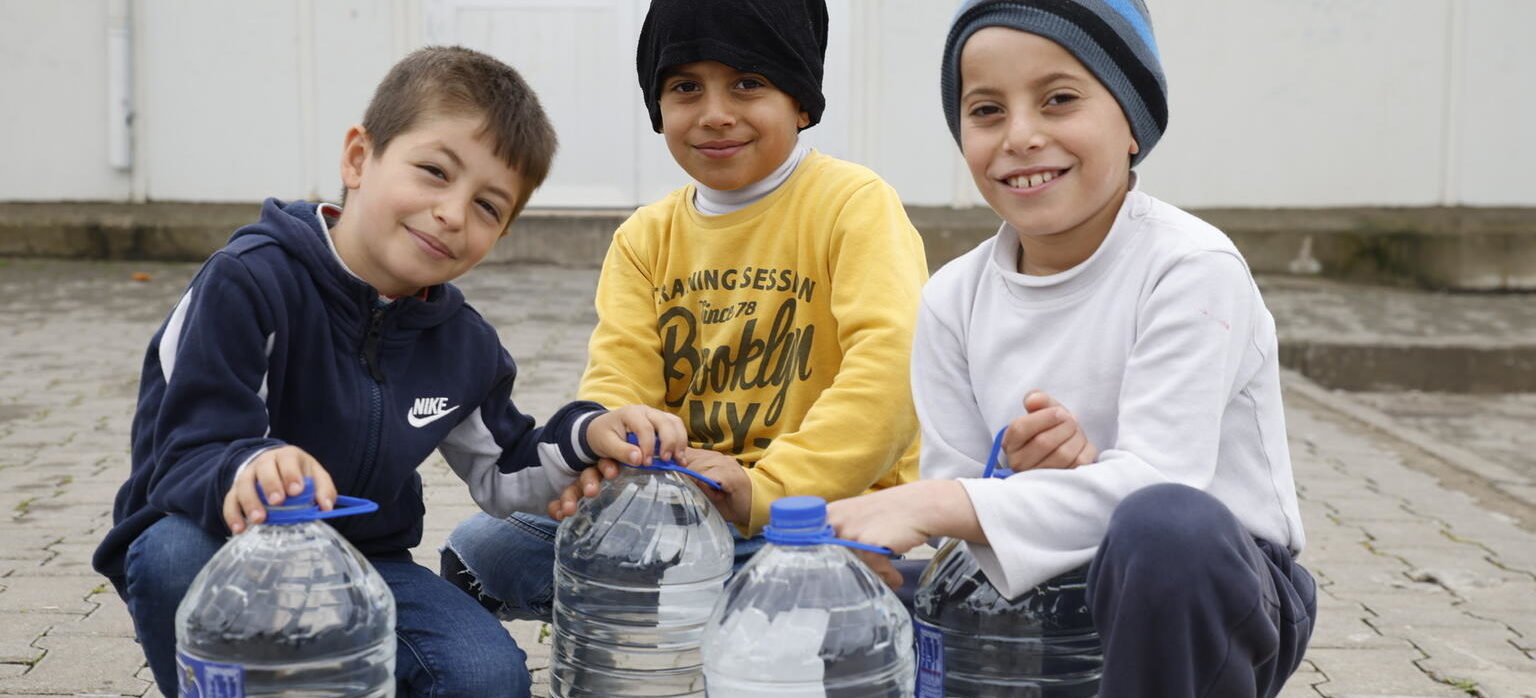When Disaster Struck in Syria
On the 6th of February, children across Syria awoke to the sight and sound of their world’s crumbling around them. A 7.8 magnitude earthquake had struck the region, leaving a trail of destruction in its wake.
Children’s homes and schools were destroyed. Their friends and family lost. Basic amenities like water, food and shelter were beyond reach. The needs were great, but you, UNICEF’s donors, were there for children when they needed you most.
What You Achieved for Children
Your donations have truly made a life-saving difference to children and their families.
You helped provide families with safe drinking water, food, shelter and medicines. You helped children, who have known nothing but war and disaster, survive.

“I wash my hands before eating a snack during recess to protect myself from diseases,” said Amal, 9, on 22 March 2023. She goes to the UNICEF-supported primary school for girls in Syria.
Water, Sanitation and Hygiene
Even before the earthquakes struck, nearly half Syria’s population relied on unsafe or contaminated sources for their drinking water. Dirty water often contains waterborne diseases, like Cholera, which can be fatal if not treated quickly. Since the disaster access to drinking water has become even more difficult for families.
UNICEF has also delivered critical hygiene supplies to over 421,000 people, including buckets, soap and water purification tablets. Aqua Tabs, also known as water purification tablets, safely and effectively destroy the bacteria commonly found in contaminated water. One tablet can purify up to 5 litres of water, keeping children safe from disease. This simple, cost-effective solution is just one of the ways you helped keep families safe from illness.
Every day, UNICEF teams are working to restore and repair Syria’s sanitation and water systems. We have installed water tanks in towns, schools and tented settlements across the country, as well as prefabricated toilets. To date, UNICEF’s WASH programme has reached almost 765,800 people in Syria.
Health and Nutrition

Hygiene Kit distribution point in a displacement camp in north of Aleppo, northwest Syria.
In times of crisis it’s imperative that disease is stopped before it’s had the chance to spread. To combat the spread of water-borne diseases, UNICEF conducted a cholera vaccination campaign in which 1.7 million doses of cholera vaccine were used.
An estimated 1,400 health workers and community volunteers implemented a 10-day vaccine campaign going from house-to-house and reaching displaced people living in camps, markets and school sites.
Across Syria, UNICEF and partners have provided more than 188,000 children and women with access to primary healthcare including free-of-charge medical consultations and medicines in health facilities and mobile clinics.
Thank You
Thanks to your generosity, the children and families affected by the earthquakes in Syria have received critical support in devastating times.
Their lives have been upended, but thanks to you there is a promise of a brighter future.


